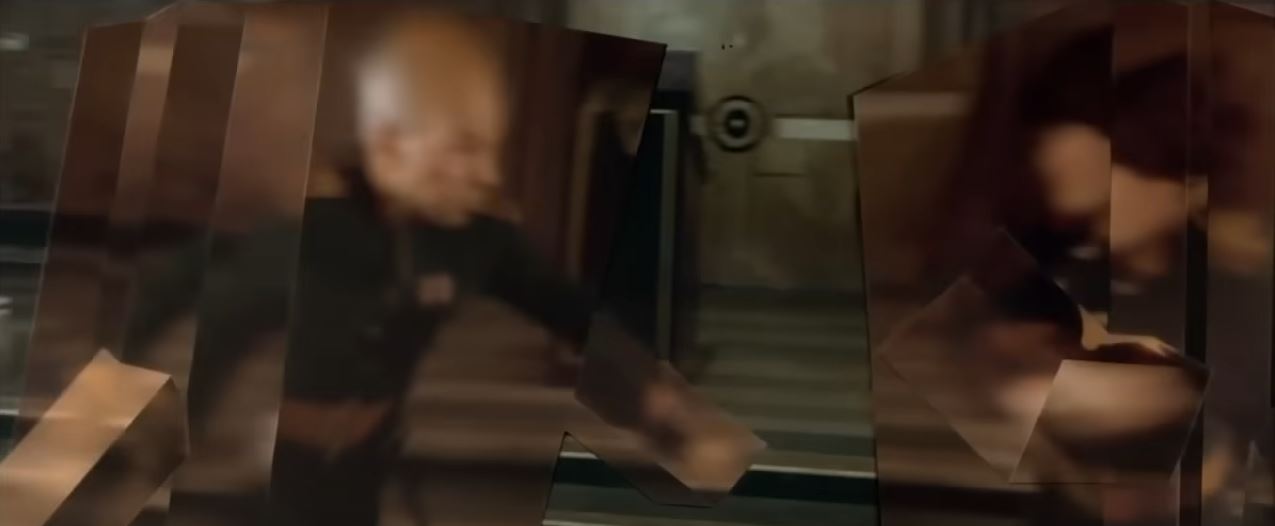Frank Herbert’s “Dune”—the shimmering mirage that has sent both readers and filmmakers staggering deliriously across the cinematic wastelands—is the sort of Everest that seems to breed not triumph but splendid, gasping misadventure. The mythos is so overstuffed, so cryptic and unyielding, that every fresh assault on its slopes promises a new brand of madness: what you get, more often than not, is altitude sickness in Dolby Surround.
David Lynch’s “Dune” (1984): Dreaming in Chains
If you want to know what it feels like to see the rational mind snap under the beachhead of studio expectation, Lynch’s “Dune” is the clinic case—the epic-as-freakshow. Studio flacks hollered “the next Star Wars!” but the result is more like Lawrence of Arabia recast by John Waters and forced to wear an MGM dog collar till it weeps. The sets! A riot of over-designer migraine, like a prom night at the Guggenheim for the terminally baroque—worm puppets glorious and the rest a tide of plastic apoplexy. The infamous shields: less Frank Herbert, more “Minecraft” on a sugar crash. You half-expect a digital Steve from the wings, pickaxe at the ready.
And the story? The poor actors are submerged beneath voiceover quicksand, as if the script were being litigated for full disclosure by an off-screen consultant from the IRS. Kyle MacLachlan’s Paul is a gentle babe in the sandstorm, so stoically confused that he seems ready to file a customer service complaint about destiny. The Emperor, meanwhile, lurches through the sets like a minor Shakespearean who overdosed on Drambuie and Philip Glass. At times, you get a whiff of poetry—Lynch fumbling for grandeur, his dream-logic leaking through the celluloid like water through bad drywall. And somehow, decades later, the movie has begun to pickle itself into a gorgeous folly: hopeless, deranged, and not a little lovable for its dogged, sweating weirdness. A monument to the majesty of disaster.
Villeneuve’s “Dune” (2021): Elegy for the Desert
Enter Denis Villeneuve, the most solemn romantic the megaplex has left. In his hands, “Dune: Part One” glides forth with the dignity of an armored hearse, all grave beauty and sand-scoured minimalism. Villeneuve treats Arrakis not as a backdrop for action figures, but as an Old Master canvas, hunger-written and haunted with purpose. You can practically feel the humidity drop in the theater: that’s Hans Zimmer’s score—part Gregorian thunder, part industrial wind turbine—sucking the moisture from your tear ducts.
What’s most radical, perhaps, is the space Villeneuve gives the material—not a striptease, but a patient, reverent unveiling. The world breathes, people have thoughts, the spectacle doesn’t lumber over every emotion like a bantha in heat. You’re allowed to linger in the nothingness, to feel the sand in your shoes and the anxious negotiation of fate and family. The ecological subtext isn’t pasted on with didactic, neon tape, but emerges in the slow oxygenation of scenes—a European patience, a refusal to pander. It’s big, it’s intimate, and for once, science fiction feels like an inhabited realm, not a toy commercial in SFX drag.
Villeneuve’s “Dune: Part Two” (2024): Apocalypse in IMAX
If Part One was the skin-prickling premonition, Part Two is the fever itself. The pieces Villeneuve so meticulously arranged are now flung into the windstorm, and at last, the long-promised apocalypse arrives—not as noise but as ceremony and consequence. The director, for once, gets a taste for carnage: the violence rolls out like a high mass at the end of the Roman Empire. If you wanted catharsis, you’ll get it—jagged and exhilarating—and maybe, when the dust settles, you’ll realize you spent half the time holding your breath.
But what lifts “Part Two” above the usual blockbuster bloodsport is the cost. The machinery of fate keeps grinding down the characters—not just the weak, but the presumptive heroes themselves. Chalamet, all cherub cheek and haunted glare, lets his Paul slide inch by inch out of the light, while Zendaya’s Chani refuses to be a decorative Spicemuse, fighting back with her own doubts and desires. The film asks you, mercilessly, not whether Paul will win (that’s never really in doubt), but who—if anyone—will be left worth saving by the end.
The few longueurs—when the film threatens to ossify under the weight of its own majesty—are reliably shattered by some visionary eruption: a sandworm breaching like the wrath of Goya, a knife fight with the pulse of prophecy behind it. Villeneuve isn’t content to leave you idle; he wants to remind you—forcefully, at times—that movies, at their midnight best, are supposed to make you feel.
The “Dune” Legacy—Mirage and Obsession
No one, not Lynch, not Villeneuve, has truly bottled Herbert’s spice. One conjured a palace of delirium built on radioactive sand; the other, cathedrals painstakingly engineered to outlast the tides. Both, in their way, are records of impossible longing. “Dune” is the project that taunts its would-be interpreters: a mirage chased by feverish artists, a hope so grand it’s bound to leave your lips chapped and your hands full of dust. Still—still!—somewhere in the middle of the desert, you taste a real drop of water.
And that is cinema’s native ecstasy: the fantasy that someday, just maybe, the next madman will finally make the sand bloom.



